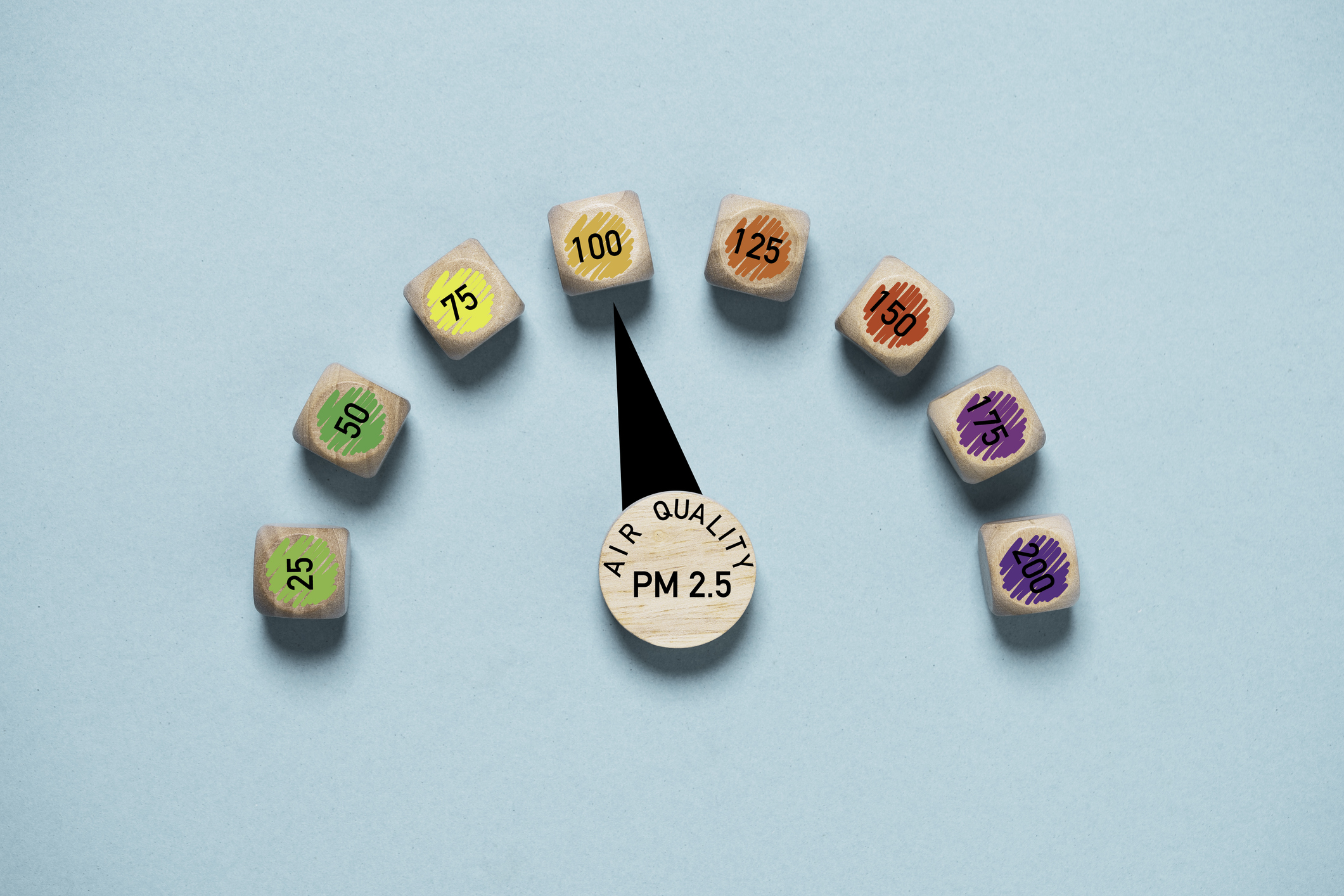Get Easy Health Digest™ in your inbox and don’t miss a thing when you subscribe today. Plus, get the free bonus report, Mother Nature’s Tips, Tricks and Remedies for Cholesterol, Blood Pressure & Blood Sugar as my way of saying welcome to the community!
A simple device to combat heart-damaging air pollution

When you think of air pollution, you probably think of the damage it’s doing to your lungs, since it’s something you’re inhaling. But the truth is, it’s likely doing just as much damage to your heart.
There is a strong link between particulate matter (PM) — a major component of air pollution which can contain dust, soot, pollen, ash, metals and soil — and cardiovascular disease (CVD).
People who live in or near high-traffic areas are frequently exposed to elevated PM levels from vehicle emissions and wear and tear from tires and brake pads.
The tiny particles can make their way into their homes, where they are inhaled and increase the risk for high blood pressure, a contributing factor for heart disease.
If this sounds like your neighborhood, it may seem impossible to avoid breathing in PM. But there’s good news — you can fight the effects of this pollution with a simple device…
The heart benefits of HEPA
In a trial of 154 adults living near highways, participants were randomly assigned to receive one month of either high-efficiency particulate air (HEPA) purification or no filtration (the same HEPA units with the filter removed).
After a one-month “washout” period during which neither group received filtration, the groups were swapped, with the previous no-filtration group receiving HEPA purification and the HEPA group receiving no filtration.
Blood pressure was measured, and participant questionnaires were collected at the start and end of each period.
The results were encouraging…
- Researchers found that participants with elevated systolic blood pressure (SBP) greater than 120 mmHg experienced an average 2.8 mmHg reduction in SBP after one month of HEPA filtration.
- By contrast, SBP increased by 0.2 mmHg during the no-filtration period. This resulted in a significant 3.0 mmHg difference in favor of HEPA purification.
- There was no significant impact reported on diastolic blood pressure or among participants with normal SBP of below 120 mmHg.
These results held even for participants who lived in areas with relatively low overall air pollution levels.
Dr. Douglas Brugge, a professor at the University of Connecticut and lead author of the study, notes that high blood pressure is one of the key modifiable risk factors for CVD.
“This research adds to growing evidence that simple interventions, like in-home air filtration, may help improve heart health for people at risk,” Brugge says.
“Overwhelming evidence shows the harmful health effects of PM2.5 exposure, even at levels below current U.S. standards,” says Jonathan Newman, a professor at NYU Grossman School of Medicine and lead author of the study’s accompanying editorial comment.
Buying and running a HEPA filter
According to Dr. Harlan Krumholz, editor-in-chief of JACC, the journal that published the study, the results indicate that even modest improvements in indoor air quality could have a meaningful impact on blood pressure for people at risk.
“While more research is needed, these results suggest that what we breathe at home may matter for our cardiovascular health,” Krumholz says.
Still, the researchers say the results are enough to recommend HEPA purifier use for vulnerable populations, those with pre-existing risk of CVD and those living within 200 meters of high-traffic highways or 100 meters of high-traffic roads.
Here are some tips for buying and operating a HEPA filter:
- Make sure the HEPA filter you buy is a “true HEPA filter” or rated H13 or H14, both of which are medical-grade HEPA filters. True HEPA filters must trap 99.97% of particles that are 0.3 micrometers in diameter.
- Buy a filter that fits the room where you will use it most frequently.
- Check to see how long each filter lasts and how much replacement filters cost. Follow the manufacturer’s recommendation for how often to replace the filter.
- For maximum effectiveness, keep the HEPA filter in one location and run it 24 hours a day with the windows and doors closed.
- Leave 18 to 24 inches of space around the back and sides of the HEPA unit.
For added protection, consider the vitamin that undoes the heart damage air pollution does, chelation for heavy metals and improve your indoor air with houseplants.
Editor’s note: There are perfectly safe and natural ways to decrease your risk of blood clots including the 25-cent vitamin, the nutrient that acts as a natural blood thinner and the powerful herb that helps clear plaque. To discover these and other secrets of long-lived hearts, click here for Hushed Up Natural Heart Cures and Common Misconceptions of Popular Heart Treatments!
Sources:
Air purifiers may reduce heart risks for people exposed to traffic pollution — EurekAlert!
Effect of HEPA Filtration Air Purifiers on Blood Pressure: A Pragmatic Randomized Crossover Trial — JACC
Understanding Blood Pressure Readings — American Heart Association
Don’t Be Fooled by HEPA Filter Types: Standard and Approved Filters — HEPACART
What to Consider When Buying a HEPA Air Filter — Public Health in the 406














